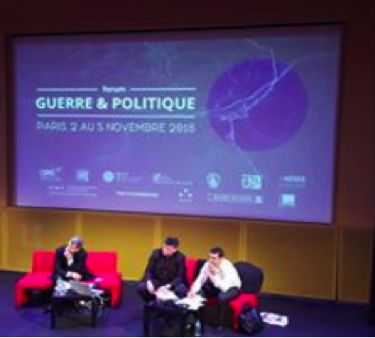
Professor Aileen Baviera of the UP Asian Center took part in a roundtable at the forum, “Guerre et Politique: Analysing War and the Rebuilding of Social Relationships,” which was held from 2 to 5 November in Paris, France.
In the roundtable, “Guerre et Politique: Cross-Perspectives in Various Regions of the World,” Professor Baviera argued that “geopolitical competition among the major powers leads to greater complexity in the search for solutions to East Asia’s maritime territorial and jurisdiction disputes. In the South China Sea, littoral states of Southeast Asia have to employ several different approaches in the face of an assertive China.”
She adds that “in the South China Sea where legal jurisdictions are not clear, and where multiple actors from several states engage in competitive activities, the risk of outbreak of conflict increases. China is the most powerful and most assertive claimant. Southeast Asian states cope with this situation through various means such as arms buildup and ASEAN regional diplomacy. Some also engage China in confidence-building measures as well as deepening of economic and sociocultural linkages. Several states have, however, invigorated security ties with the United States in order to promote their strategic interests. Whether or not this portends better solutions or creates new conflict dynamics is not clear.”
Her insights were submitted as “War and Conflict in East Asia: Focus on Maritime Gray Zones.”
“Gray zone conflict is best understood as activity that is coercive and aggressive in nature, but that is deliberately designed to remain below the threshold of conventional military conflict and open interstate war” (Brands 2016).
The forum was organized by the team of Guerre & Po research project in partnership with Gaîté Lyrique, L’Ecole Des Hautes Etudes en Sciences Sociales, and Institut des mondes africains, among others. During her visit, Dr. Baviera also spoke before a small audience organized by the Philippine Embassy in Paris on emerging foreign policy directions under the Duterte administration, as well as recent trends in China-Southeast Asia relations.
Reposted from U.P. Asian Center website, you may view the original post here.
